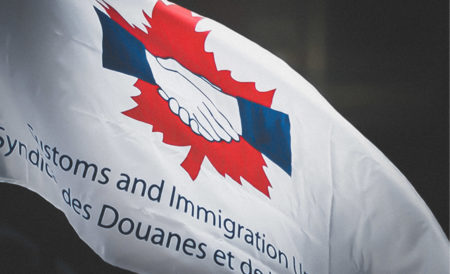After a week of mediation, Treasury Board made no effort to find common ground in bargaining with our more than 10,000 SV group members, refusing to budge on any key issues, especially when it came to fair wages and market adjustments.
The employer’s revised wage offer was initially proposed during Common Issues mediation in September, and would average 2.06% per year over a four-year agreement. Treasury Board held fast to this wage offer during mediation October 11-14.
The SV team proposed that, in the event that the parties are unable to come to an agreement on market adjustments at the bargaining table, the issue be sent to binding arbitration. However, the employer rejected this proposal.
Our team made it clear: closing the gap between SV members’ wages with those in similar positions outside of the federal public sector is the number one priority in this round of negotiations. Unless the government comes back to the table with a new mandate, we will continue to push for this issue to be sent to arbitration or we’ll be forced to settle the dispute on the picket lines.
Government stalling negotiations
Treasury Board seems intent on delaying negotiations and dragging their feet on our most important issues, setting back our members who have been without a new contract since June 2021. In response, PSAC has launched both in-person and online strike training for our more than 165,000 federal public service workers to ratchet up the pressure on the government to bargain fairly.
PSAC will now raise these issues at Public Interest Commission hearings, to be scheduled this fall by the Federal Public Sector Labour Relations and Employment Board. If an agreement cannot be reached during the Public Interest Commission process, PSAC members should be prepared to continue escalating our actions, up to and including taking strike action if necessary to reach a fair contract.
Stay informed and engaged
Getting involved and taking action are key as we push for a fair contract. Be prepared, get mobilized, stay engaged, and be ready to take action:
- Sign up for online or in-person strike training courses
- Read our Treasury Board bargaining toolkit
- Check out our FAQ on Treasury Board bargaining
- Fill out this survey to share how you’d like to get involved
- Participate in actions, information sessions, lunch and learns, and workshops
- Learn the rules of union activities in the workplace
- Get in touch with your regional office to find out what’s happening near you
Keep your contact information up to date to receive all latest bargaining updates.
This article was first posted on the PSAC website.






